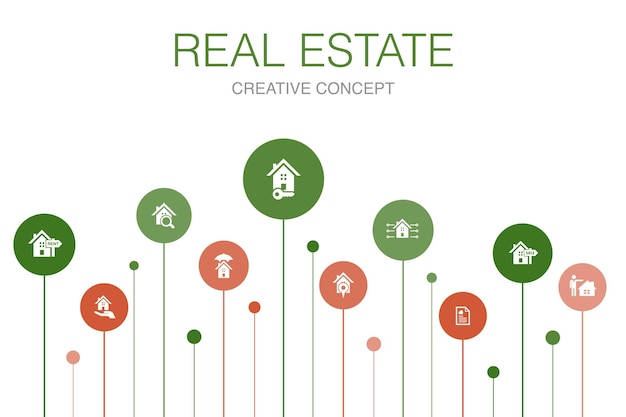How to Navigate the Fed’s Projected Rate Hike in 2025 for Your Mortgage

Navigating the Federal Reserve’s projected 0.75% interest rate hike in early 2025 requires a strategic approach to your mortgage, influencing decisions on refinancing, adjustable-rate mortgages, and overall affordability.
A projected 0.75% interest rate hike by the Federal Reserve in early 2025 is poised to reshape the mortgage landscape, requiring homeowners and prospective buyers to reassess their strategies. Understanding how will the Federal Reserve’s projected 0.75% interest rate hike in early 2025 impact your mortgage strategy is crucial for making informed financial decisions.
Understanding the Federal Reserve’s Interest Rate Decisions
The Federal Reserve’s monetary policy decisions play a pivotal role in shaping the economic climate, influencing interest rates across various sectors, including the mortgage market. These decisions are carefully considered, taking into account factors such as inflation, employment rates, and overall economic growth.
Factors Influencing the Fed’s Rate Hike
Several factors could prompt the Federal Reserve to implement a 0.75% interest rate hike in early 2025. Persistent inflation, a robust labor market, and strong economic growth are key indicators that might lead the Fed to tighten monetary policy.
Understanding these factors is crucial for anticipating future rate movements and adjusting your mortgage strategy accordingly.
- Inflation: If inflation remains above the Fed’s target rate, a rate hike may be necessary to cool down the economy.
- Employment: A strong labor market with low unemployment could signal that the economy can handle higher interest rates.
- Economic Growth: Robust GDP growth may prompt the Fed to raise rates to prevent the economy from overheating.
The Federal Reserve’s decisions are data-driven and subject to change based on evolving economic conditions. Monitoring these factors can help you stay informed and prepared for potential rate hikes.
Therefore, understanding the forces driving the Fed’s decisions is essential to navigating the mortgage market effectively.
How a 0.75% Rate Hike Affects Mortgage Rates
A 0.75% increase in the federal funds rate directly impacts mortgage rates, making borrowing more expensive for homebuyers and potentially altering the dynamics of the housing market. This change can influence both fixed-rate and adjustable-rate mortgages.

Impact on Fixed-Rate Mortgages
Fixed-rate mortgages are directly correlated to the 10-year treasury yield and any basis point (bps) change to the yield is directly correlated. While the impact is not always one-to-one, it is safe to a change to the yield will impact the interest rate.
Impact on Adjustable-Rate Mortgages (ARMs)
Adjustable-rate mortgages (ARMs) are even more directly impacted. ARMs fluctuate with underlying benchmarks, and depending on those benchmarks with can be a direct correlation.
- Increased Borrowing Costs: Higher mortgage rates translate to larger monthly payments, reducing affordability for potential homebuyers.
- Refinancing Challenges: Existing homeowners looking to refinance may find it less attractive as rates rise, diminishing the benefits of refinancing.
- Cooling Housing Market: Increased borrowing costs can lead to a slowdown in housing demand, potentially impacting property values and sales volumes.
Understanding the connection between rate hikes and mortgage costs helps you anticipate changes and make informed decisions when buying or refinancing a home. Staying informed about these dynamics is crucial for effective mortgage planning.
Thus, a clear understanding of how these rate adjustments translate into real-world effects on mortgage rates is essential for anyone involved in the housing market.
Strategic Considerations for Homebuyers
Prospective homebuyers need to adopt a strategic approach in anticipation of a 0.75% interest rate hike. This includes assessing affordability, exploring different mortgage options, and understanding the long-term implications of higher rates.
Adjusting your approach given new economic conditions is essential to remain competitive.
- Assess Affordability: Carefully evaluate your budget and determine how much you can comfortably afford with higher mortgage rates.
- Explore Mortgage Options: Compare fixed-rate and adjustable-rate mortgages to find the best fit for your financial situation.
- Consider Locking in Rates: If rates are expected to rise, consider locking in a lower rate to protect against future increases.
Proactive planning and diligent research can help you navigate the complexities of the mortgage market and secure a favorable deal, even in a rising rate environment. Staying flexible and informed is key to making soundHomeowners with adjustable-rate mortgages (ARMs) need to prepare for the possibility of higher monthly payments as interest rates increase. Evaluating refinancing options and understanding the terms of your ARM are crucial steps to mitigate potential risks.
Therefore, homeowners who may consider moving up or even selling must understand the implications.
Refinancing Strategies in a Rising Rate Environment
With interest rates on the rise, homeowners considering refinancing need to evaluate their options carefully. This includes assessing the potential benefits of refinancing, understanding the costs involved, and exploring alternative strategies to manage mortgage payments.
Evaluating Refinancing Benefits
As interest rates rise, refinancing may become less attractive, but there are still situations where it can be beneficial. Homeowners should assess their current mortgage terms, outstanding balance, and financial goals to determine if refinancing makes sense.
It is important weigh the pros and cons before refinancing.
Understanding Refinancing Costs
Refinancing involves various costs, including application fees, appraisal fees, and closing costs. Homeowners need to factor these costs into their decision and calculate the breakeven point to ensure that refinancing is a worthwhile investment. Always be certain to calculate the actual cost after all fees are included.
It is critical to understand all the fees involved to know if refinancing benefits you.
- Assess Current Terms: Compare your existing mortgage rate and terms to current market rates to determine potential savings.
- Calculate Breakeven Point: Determine how long it will take to recoup refinancing costs through lower monthly payments.
- Consider Long-Term Goals: Evaluate whether refinancing aligns with your long-term financial objectives, such as reducing debt or freeing up cash flow.
Thorough analysis and careful consideration are essential when making refinancing decisions in a rising rate environment. Always carefully review you finances to make the best decision possible.
Therefore, a well-thought-out refinancing strategy is necessary to make sound financial decisions and achieve your desired outcomes.
Strategies for Adjustable-Rate Mortgage Holders
Homeowners with adjustable-rate mortgages (ARMs) need to prepare for the possibility of higher monthly payments as interest rates increase. Evaluating refinancing options and understanding the terms of your ARM are crucial steps to mitigate potential risks. These preparation steps are very important.
It is important to fully understand the details of your ARM, as everyone’s will have different details.”
- Review ARM Terms: Understand how your interest rate adjusts, including the frequency of adjustments and any rate caps.
- Evaluate Refinancing: Consider refinancing to a fixed-rate mortgage to lock in a stable interest rate and avoid future increases.
- Prepare for Higher Payments: Adjust your budget to accommodate potentially higher monthly payments if rates rise.
Take the time to learn the proper terms and language associated with ARMs to ensure appropriate preparation. There are many terms to learn, so study the document you signed carefully.
Therefore, this is an important strategy to know as interest rates change.
Budgeting and Financial Planning Adjustments
Rising interest rates can impact your overall financial health, requiring adjustments to your budgeting and financial planning strategies. This includes reevaluating your spending habits, prioritizing debt repayment, and building an emergency fund.
This is extremely important, everyone should be doing these habits regardless.”
- Reevaluate Spending: Identify areas where you can reduce spending to free up cash for higher mortgage payments.
- Prioritize Debt Repayment: Focus on paying down high-interest debt to reduce your overall financial burden.
- Build Emergency Fund: Create a financial cushion to cover unexpected expenses and potential increases in mortgage payments.
Sound financial management is essential for navigating the challenges of a rising rate environment and achieving long-term financial stability. Understanding each of your financial choices is so important. Knowledge of a sound budget is also very important.
Therefore, developing and following a budget is key during uncertain times.
| Key Point | Brief Description |
|---|---|
| 📈 Rate Hike Impact | Increases borrowing costs for mortgages. |
| 🏡 Homebuyers | Assess affordability, explore mortgage options. |
| 🔄 Refinancing | Evaluate costs and benefits carefully. |
| 💰 Budgeting | Adjust spending, prioritize debt, build savings. |
Frequently Asked Questions
▼
If you have a fixed-rate mortgage, your rate remains unchanged. If you have an adjustable-rate mortgage (ARM), your rate may increase, impacting your monthly payments based on the terms of your ARM.
▼
Consider refinancing if the new fixed rate is appealing and provides long-term stability. Evaluate the costs versus the benefits of a predictable monthly payment versus the upfront investments of refinancing.
▼
Homebuyers should assess their affordability, explore various mortgage options, and consider locking in rates. It is important to stay on top of their finances and make the financial situation work for the moment.
▼
Review your spending habits, cut non-essential expenses, prioritize debt repayment, and build an emergency fund. Any of these are great ways to prepare and adjust your budget accordingly.
▼
The Fed considers inflation, employment rates, and economic growth. Keeping a close eye on these can help you anticipate future rate adjustments. It is important to know all of the details before the time arrives.
Conclusion
Navigating the impact of a Federal Reserve interest rate hike requires a proactive and informed approach. By understanding the factors influencing rate decisions, assessing your financial situation, and exploring strategic options, you can effectively manage your mortgage and achieve your financial goals, even in a changing economic landscape.